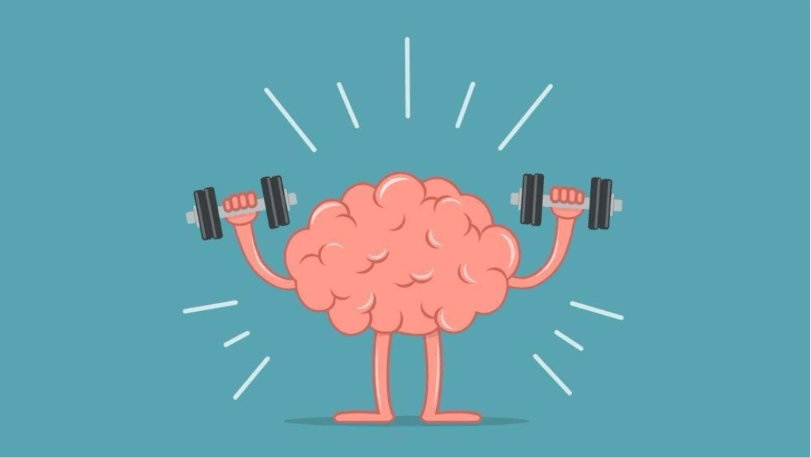Regular exercise is known for its physical benefits, but it also plays a crucial role in enhancing mental health. Engaging in physical activity can improve mood, reduce stress, and even boost cognitive function. Here’s a look at the powerful mental health benefits of incorporating regular exercise into your routine.
Reduces Symptoms of Anxiety and Depression
Exercise releases endorphins and other feel-good chemicals in the brain, which help reduce feelings of anxiety and depression. Physical activity can serve as a natural antidepressant, providing relief without medication for some individuals. The release of endorphins during exercise lifts mood and reduces stress, leading to an overall sense of well-being.
- Keywords: Anxiety, depression, endorphins, mood, stress, antidepressant, physical activity, relief, natural, well-being.
Boosts Self-Esteem and Confidence
Exercise helps improve self-esteem and body image by promoting physical fitness and achieving personal goals. When you exercise regularly, you gain a sense of accomplishment and confidence, which can enhance your self-worth. Seeing improvements in strength, endurance, or physical appearance can boost confidence and make you feel more positive about yourself.
- Keywords: Self-esteem, confidence, body image, fitness, personal goals, accomplishments, strength, endurance, positive, self-worth.
Reduces Stress and Tension
Physical activity is an excellent way to manage stress by reducing levels of cortisol, the body’s primary stress hormone. Exercise provides a natural outlet for releasing built-up tension and can shift focus away from daily worries. Activities like running, yoga, or weightlifting help relax the muscles and promote a calmer state of mind.
- Keywords: Stress, tension, cortisol, relax, muscles, daily worries, running, yoga, weightlifting, calm.
Enhances Cognitive Function and Memory
Exercise has been shown to improve cognitive function by increasing blood flow to the brain, which enhances memory and focus. Regular physical activity supports neuroplasticity, the brain’s ability to adapt and grow, which can improve mental clarity and learning. Activities like aerobic exercises and strength training are particularly beneficial for maintaining and enhancing cognitive health.
- Keywords: Cognitive function, memory, blood flow, brain, focus, neuroplasticity, mental clarity, learning, aerobic, strength training.
Improves Sleep Quality
Engaging in regular exercise can lead to better sleep by helping you fall asleep faster and enjoy deeper, more restful sleep. Exercise reduces insomnia symptoms and promotes a healthier sleep cycle, which supports mental and physical recovery. A good night’s sleep, in turn, enhances mood, focus, and overall mental well-being.
- Keywords: Sleep quality, fall asleep, insomnia, restful sleep, sleep cycle, recovery, mood, focus, well-being, mental.
Promotes Social Connection and Reduces Loneliness
Many forms of exercise, like joining a fitness class, participating in a sports league, or taking a group hike, offer opportunities for social interaction. Building connections with others who share similar fitness goals can reduce feelings of loneliness and create a support network, boosting both mental and emotional health.
- Keywords: Social connection, fitness class, sports league, group hike, interaction, loneliness, support network, mental health, emotional health, fitness goals.
Provides a Healthy Coping Mechanism
Exercise is a positive outlet for managing emotions and coping with life’s challenges. Rather than resorting to unhealthy habits, physical activity provides a constructive way to relieve stress and feel better mentally. Exercise can serve as a mental break, allowing you to recharge and gain a fresh perspective on difficult situations.
- Keywords: Coping, outlet, emotions, stress relief, positive, mental break, recharge, perspective, constructive, healthy.
Enhances Focus and Concentration
Regular physical activity has been shown to improve focus and concentration by stimulating the brain and increasing blood flow. Exercise sharpens cognitive abilities, making it easier to complete tasks and stay focused throughout the day. This improvement in concentration can boost productivity, which further contributes to mental well-being.
- Keywords: Focus, concentration, cognitive abilities, blood flow, productivity, tasks, brain, mental well-being, improvement, exercise.
Increases Resilience to Life’s Challenges
Building a routine of regular exercise can foster a stronger mental resilience by training you to overcome physical challenges, which translates into emotional resilience. Exercise encourages discipline, patience, and perseverance, helping you develop coping skills that are beneficial in dealing with life’s obstacles.
- Keywords: Resilience, challenges, discipline, patience, perseverance, coping skills, mental resilience, routine, life obstacles, emotional.
FAQs
1. How often should I exercise to experience mental health benefits?
Experts recommend 30 minutes of moderate exercise at least 3-5 times per week for optimal mental health benefits.
2. Can any form of exercise improve mental health?
Yes, any physical activity—whether aerobic or strength training—can positively impact mental health. Choose activities that you enjoy for the best results.
3. How long does it take to feel the mental benefits of exercise?
Many people experience mood improvements immediately after exercise due to endorphin release. Long-term benefits, such as reduced anxiety, are usually noticeable after several weeks.
4. Can exercise replace therapy for mental health issues?
Exercise can be a helpful addition to mental health care, but it is not a substitute for professional therapy if you’re dealing with severe mental health issues.
Conclusion
Regular exercise offers numerous mental health benefits, from reducing anxiety and stress to improving focus and self-esteem. By incorporating physical activity into your routine, you can support a healthier mind and build resilience to life’s challenges. Remember that even small amounts of exercise can make a big difference, so start with activities you enjoy and work toward consistency.

